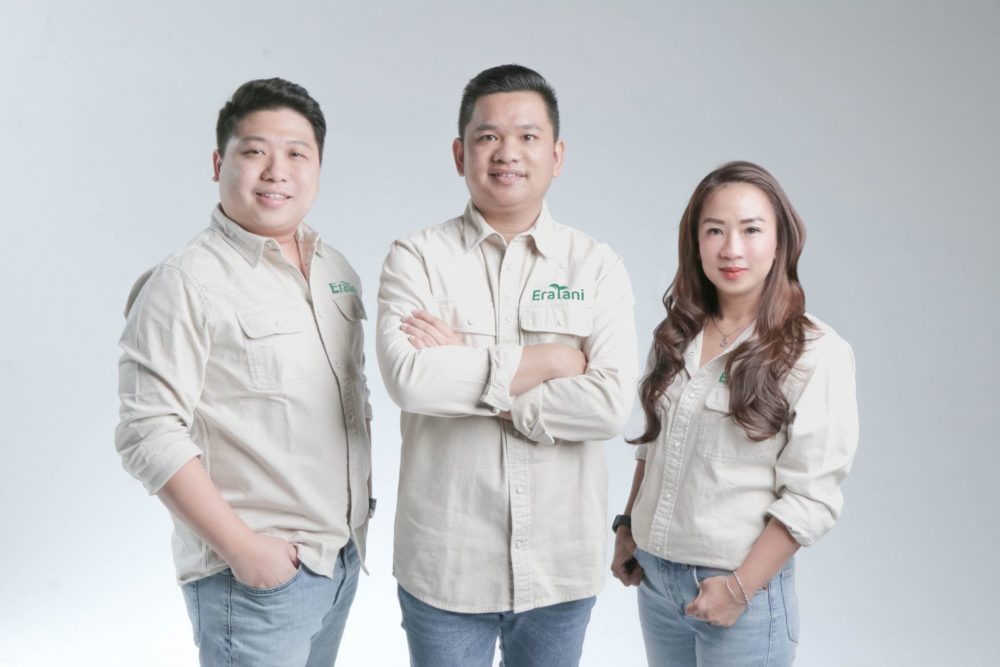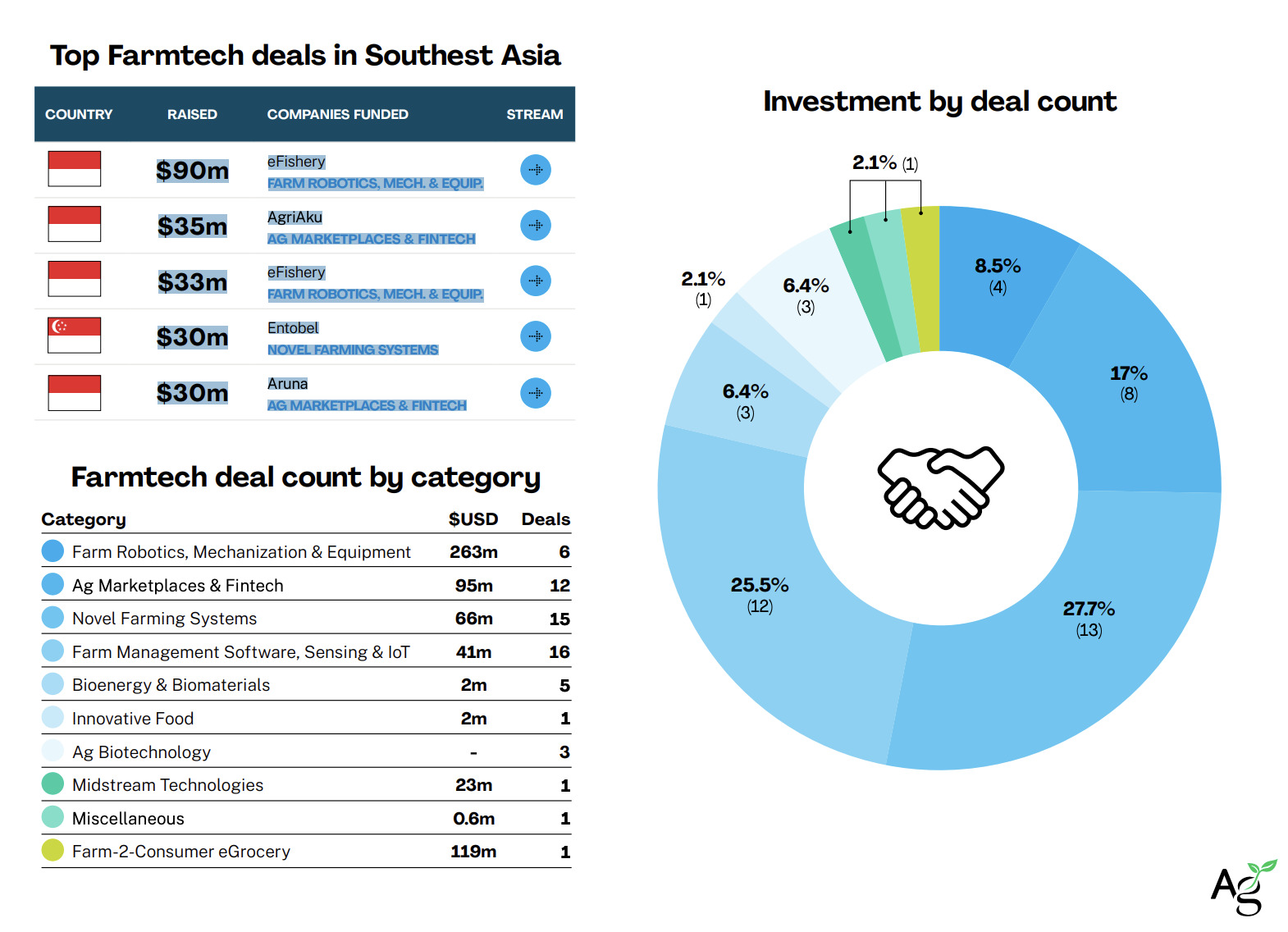Data snapshot is a regular AgFunderNews feature in which we analyze agrifoodtech market investment data provided by our parent company, AgFunder.
Click here for more research from AgFunder and sign up to our newsletters to receive alerts about new research reports.
Historically, Southeast Asia (SEA) smallholder farmers have grappled with unreliable access to inputs and supplies, barriers around finance and a fragmented, often opaque supply chain. This is despite the vital role these smallholders play in SEA’s economy, producing everything from commodities like wheat and maize to rubber, coffee and palm oil.
In the face of the climate crisis, however, this is beginning to change. SEA is recognized as one of the world’s most vulnerable regions to climate change; in agriculture, this has led to calls for more sustainable farming solutions that are easily accessible by smallholder farmers.
SEA has never been a hotbed of VC innovation when it comes to farmtech. Recent numbers suggest that, too, is changing. AgFunder’s Asia-Pacific AgriFoodTech Investment report 2023 recently found that, although overall funding to the region was down in 2022, more VC dollars went towards upstream startups working close to the farm.
Farmtech deals in SEA totaled $481 million in 2022, with robotics, ag marketplaces and novel farming systems raking in the most cash.
Southeast Asia farmtech: 2018 – 2023
| Year | Amt raised |
| 2018 | $37m |
| 2019 | $103m |
| 2020 | $262m |
| 2021 | $467m |
| 2022/23 | $569m |
Top SEA farmtech deals: 2022
Indonesia’s eFishery had the largest deal in 2022 with its $90 million Series C led by Softbank, and also the third-largest deal with a $33 million loan facility from Bank DBS.
Two agribusiness marketplaces/fintech platforms raised prominent rounds: B2B farmer platform AgriAku ($35 million) and Aruna ($30 million), a platform specific to fisheries.

Imaged credit: Eratani
Startup spotlight Q&A: Eratani
Indonesia’s Eratani is a B2B agritech company specializing in paddy farming solutions. The end-to-end farmer platform aims to promote sustainable food security, self-sufficiency, and prosperity among rice farmers by offering comprehensive guidance.
AgFunderNews (AFN): What is your reaction to the dramatic drop in agrifoodtech funding in 2022?
Eratani: The downslide in funding for agrifoodtech has definitely affected and limited growth and the expansion potential of businesses in this sector. This hinders innovation, development, and scaling of solutions.
At Eratani, these circumstances compel us to stay adaptive, streamlined, and customer-focused. This situation will not change our commitment to continue to serve the farming community and ensure that they have the tools and support needed for sustainable and prosperous farming, irrespective of the external financial climate. This scenario underscores the significance of financial self-sufficiency, judicious budget management, and seeking alternative funding avenues to holistically support our farmers
AFN: What has Eratani done in order to address the challenges of agriculture in the region?
Eratani: To counter these challenges, Eratani has devised strategic responses:
Providing access to financial solutions: Assisting farmers in securing the necessary capital at affordable rates. Through partnerships and collaborations, we are working towards reducing the financial burden faced by farmers.
Providing access to education: Educating both farmers and consumers about the importance of a sustainable and secure food supply chain can have a significant impact. This can include workshops, awareness campaigns, and educational materials. Eratani offers full support and guidance from planting to harvesting with objective to improve the yield of the farmers.
Market access: Our strategies are designed to protect farmers from price and demand uncertainties, and our efforts in building B2B and B2G market capabilities ensure better market reach and profitability.
Building strategic partnerships: Eratani believes in the power of collaboration. We’ve joined hands with diverse stakeholders, including local rice mills, warehouses, government entities, universities, NGOs, and other enterprises, to collectively tackle challenges in the agrifood sector.





